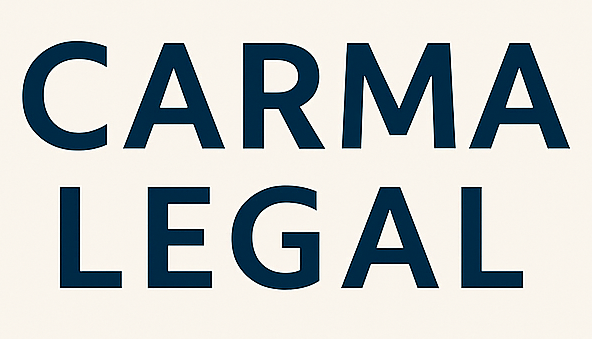Your healthcare decisions are among the most personal choices you’ll ever make. By partnering with a medical power of attorney attorney, you can create a legally binding document that ensures your treatment preferences are honored if you become unable to express them. In this guide, you’ll discover what a medical power of attorney is, why proactive planning matters, and how an experienced attorney safeguards your wishes, protects your loved ones from unnecessary court proceedings, and brings you lasting peace of mind.
Medical power of attorney
What is a medical POA?
A medical power of attorney, sometimes called a health care proxy or durable health care power of attorney, is a legal directive that names an agent to make medical decisions on your behalf if you’re incapacitated. According to Investopedia, this document only takes effect when you cannot make informed decisions yourself [1]. Your agent, or “attorney in fact,” gains authority to accept, refuse, or withdraw informed consent for care, treatment, services, or procedures just as you would.
When does it activate?
- A licensed physician or attending provider must determine that you lack capacity to make health care decisions.
- The directive remains dormant until you meet the medical criteria outlined in your state’s statutes.
- Once activated, your chosen agent steps in to carry out your specified instructions and values.
Benefits of proactive planning
Preventing court intervention
If you lack a medical proxy and become incapacitated, a court could appoint a conservator or guardian to decide on your health care, often after a lengthy, costly process. By executing your own directive, you avoid this uncertainty and ensure someone you trust, not a judge or random court-appointed official, makes decisions based on your values.
Ensuring family peace
Knowing your wishes are documented brings relief to family members who might otherwise struggle over complex choices under stress. A clear directive:
- Reduces emotional conflict among relatives
- Shields loved ones from second-guessing your preferences
- Creates a unified plan that health professionals can follow
Role of your attorney
Drafting legally valid forms
An experienced estate planning attorney ensures your medical power of attorney complies with your state’s requirements for signatures, notarization, and witness rules. In many states you must sign the directive before a notary public, but you typically do not need a lawyer or health professional to draft it. Your attorney makes certain the form is enforceable and free of ambiguous language that could lead to disputes.
Adhering to state laws
Each jurisdiction has unique statutes governing health care proxies. For example, Ohio’s durable power of attorney for health care takes effect only when your attending physician deems you incapable, and it prohibits your agent from withdrawing life-sustaining treatments under certain circumstances [2]. A specialized lawyer keeps current on these nuances so you don’t face unintended gaps in your protection.
Steps to appoint agent
Selecting your health care agent
- Choose someone you trust implicitly to honor your values.
- Discuss your wishes in detail—treatment preferences, end-of-life care, pain management, organ donation, and more.
- Confirm their willingness to act when needed and to advocate for you under stress [3].
Executing and notarizing documents
- Sign your directive in front of the required number of witnesses or a notary, based on state law.
- Provide copies to your agent, primary care physician, and any relevant specialists.
- Keep the original in a safe but accessible place, and inform key family members of its location.
Customizing your directive
Specifying treatment preferences
Your instruction document can include specific desires, such as:
- Use or refusal of life-sustaining treatments
- Ventilator or dialysis preferences
- Comfort-care measures, including pain management
- Organ or tissue donation choices
Defining power limitations
You may limit your agent’s authority by:
- Prohibiting withdrawal of nutrition or hydration
- Restricting decisions in cases of pregnancy
- Stating that a living will override your agent on certain treatments [4]
Comparison of estate planning directives
| Feature | Medical power of attorney | Durable power of attorney | Living will |
|---|---|---|---|
| Primary purpose | Health care decisions when incapacitated | Financial and personal matters | Specific end-of-life treatment wishes |
| Activation | Physician determines loss of decision-making capacity | Immediately or upon incapacity | Upon confirmed incapacity |
| Scope | Consent, refusal, withdrawal of medical care | Bills, property transactions, legal filings | Life-sustaining treatments |
| Revocation | Any time by principal | Any time by principal | Any time by principal |
Avoiding common mistakes
Overly broad authority
Granting unlimited power can leave room for misunderstanding or misuse. Clearly define which decisions your agent may and may not make to reflect your comfort level.
Failing to communicate wishes
Even a well-drafted directive loses effectiveness if your agent and family don’t know your values. Schedule a family meeting or one-on-one conversations to discuss your document in depth.
Outdated information
Life circumstances change—relationships shift, health evolves, laws are amended. You should review your directive every few years or after a major life event like marriage, divorce, or a serious diagnosis.
Working with your attorney
Coordinating other estate documents
Your medical proxy is one piece of a comprehensive plan. A powers of attorney lawyer or advance directive lawyer helps integrate:
- A durable financial power of attorney for managing assets
- A living will lawyer document for end-of-life instructions
- Trusts and wills drafted by a trusts lawyer or wills lawyer
Scheduling regular reviews
An estate planning law firm can set up annual or biennial check-ins to update your documents, ensuring they remain valid under changing state statutes and reflect your current wishes.
Securing lasting protections
Taking next steps
Your health care is too important to leave to chance. By working with a qualified medical power of attorney attorney—and coordinating your directive with complementary estate planning documents—you safeguard your rights, prevent unnecessary court proceedings, and ease the emotional burden on your loved ones. Contact a durable power of attorney lawyer or an estate planning attorney today to schedule a consultation and take control of your future health care decisions.








